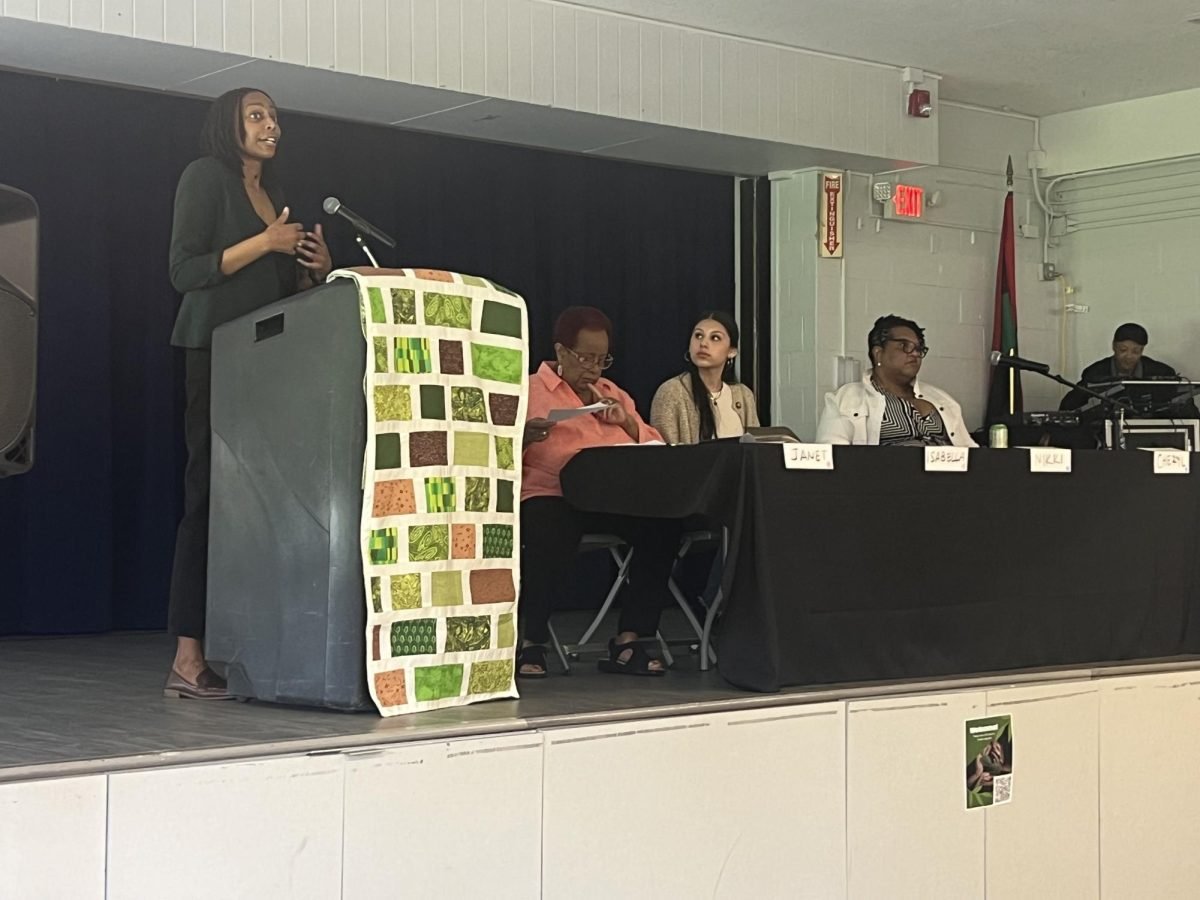The Evanston Environmental Justice Conversation Series hosted keynote speaker Cheryl Johnson, executive director of People for Community Recovery, and a panel of environmental activists Saturday for its inaugural event at the Fleetwood-Jourdain Center.
Conversations centered around the disproportionate effects of climate change on marginalized communities and measures activists have taken to address these issues.
“The environment is us,” Johnson said. “Either we’re going to get it right, or we’re going to continue to do it wrong, and we’re going to experience some of the devastation that comes along with it.”
The Evanston Environmental Justice Conversation Series is a biannual series created by The Center for the Church and the Black Experience and the Stead Center for Ethics and Values at Garrett-Evangelical Theological Seminary in collaboration with the Evanston/North Shore NAACP.
According to the event’s website, the series serves to foster “rich conversations between community members, environmental justice advocates and civic, religious and academic leaders.”
In her address, Johnson reflected on the work People for Community Recovery — a Chicago-centered environmental nonprofit founded by her mother in 1979 — has accomplished to combat discriminatory environmental issues over four decades.
She said she grew up in a “toxic doughnut” between landfills, leaking underground storage tanks and hazardous operation facilities, which motivated much of her mother’s initial work. Johnson said the organization was responsible for several environmental health reforms, including removing lead and asbestos from public housing in south Chicago.
“The only way to improve the quality of life — in not just my neighborhood, but for every neighborhood — is that we unite and come together,” Johnson said.
Following Johnson’s address, local environmental justice activists discussed their experiences and challenges in advocacy in a panel discussion. The panel consisted of Johnson, Evanston Township High School junior Isabella Bernal, Stead Center for Ethics and Values scholar-in-residence Nicole Hoskins and Environmental Justice Evanston co-chair Janet Alexander Davis.
Bernal, the youngest panelist, read a portion of a letter she sent to U.S. Rep. Jesús “Chuy” García (D-Chicago) on how her age impacts her advocacy.
“It’s unfair for my generation to be silenced due to our age and disregarded in our concern when we are the future that will be responsible for addressing the harm that was caused by those before us,” she said.
Davis said that environmental injustice is multifaceted and that racism is still “rampant” in Evanston.
She also referenced the effects of the garbage dump on Church Street in a historically Black neighborhood. She said trucks have damaged the foundation of the roads and the odor from the waste has pervaded the area.
“If you haven’t lived poor, or you haven’t lived Black, or you haven’t lived brown, you cannot experience it the same way that I do, or they do,” Davis said.
Davis added that she understands people most affected by climate issues often struggle to attend meetings such as the speaker series.
She said she hopes to reach out to communities that suffer most from climate issues.
“I would love to see another full room like this of more colors, people of all colors, all races, and say to ourselves, ‘What are we really doing to make a difference in this community?” she said.
Email: [email protected]
Related Stories:
— Environmental Justice Evanston in talks to develop mapping tool prototype with city
— As D65 proceeds with 5th Ward school, environmental advocates ask for commitment to sustainability














